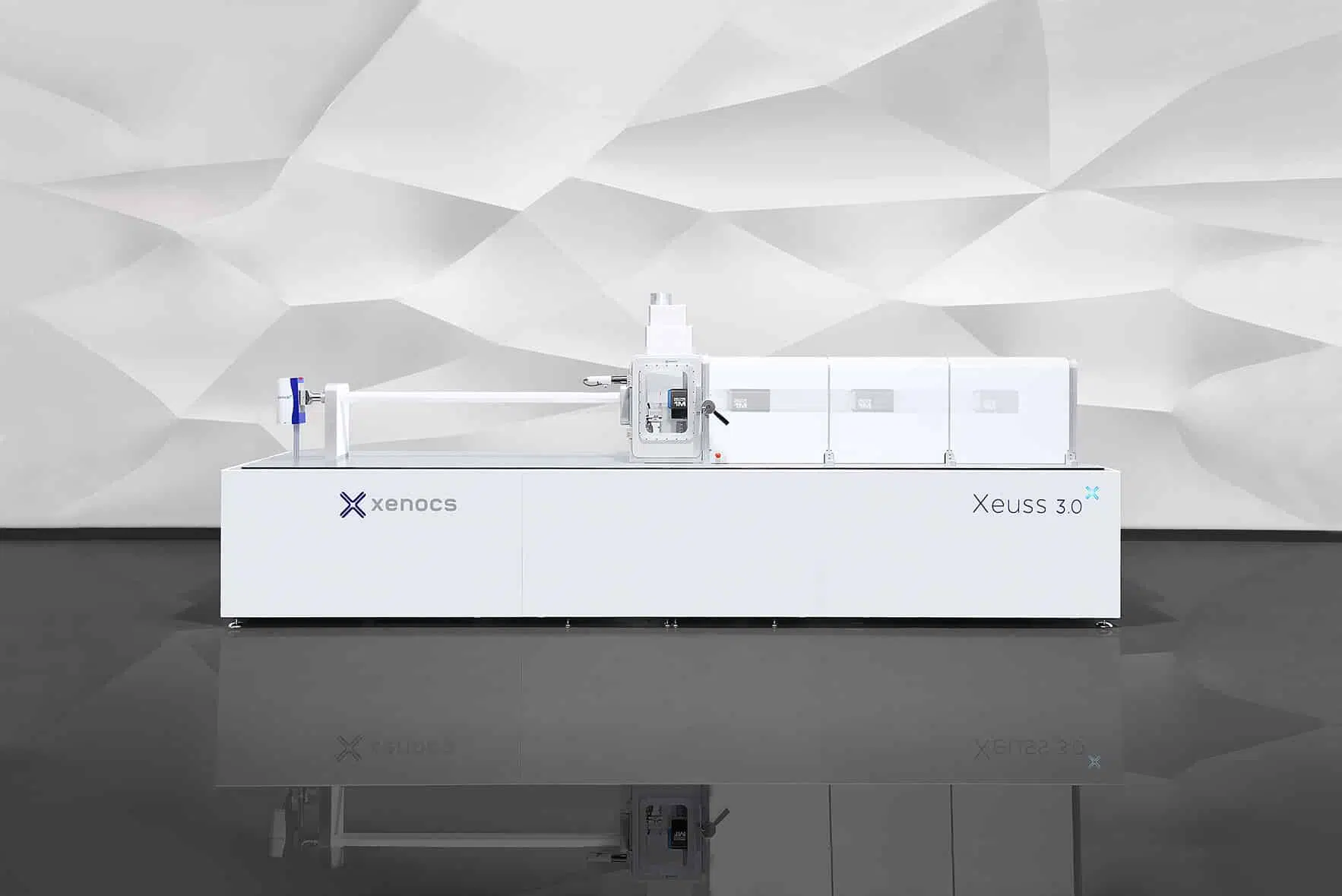Xing, Pengyao; Phua, Soo Zeng Fiona; Wei, Xuan; Zhao, Yanli
Programmable Multicomponent Self-Assembly Based on Aromatic Amino Acids
Construction of integrated self-assembly with ordered structures from two or more organic building blocks is currently a challenge, since it suffers from intrinsic systematic complexity and diverse competitive pathways. Here, it is reported that aromatic amino acid building units can be incorporated into two- or three-component coassembly driven primarily by…
Deformation Mechanism of Poly(3-alkylthiophene) Studied by in Situ X-ray Scattering and Texture Analysis
Chen, Haiming; Su, Cui; Shi, Guangyu; Li, Xiaolu; Zhang, Xiuqin; Liu, Guoming; Wang, Dujin
Understanding the deformation mechanism of conjugated polymers is essential for developing flexible or stretchable electronic devices. In this work, the mechanical properties of poly(3-dodecylthiophene) (P3DDT) and poly(3-hexylthiophene) (P3HT) are measured at different temperatures, and the underlying deformation mechanism is explored by using in situ X-ray scattering and pole figure. It…
Disruptive effect of tocopherol oxalate on DPPC liposome structure: DSC, SAXS, and fluorescence anisotropy studies
Neunert, Grażyna; Tomaszewska-Gras, Jolanta; Siejak, Przemyslaw; Pietralik, Zuzanna; Kozak, Maciej; Polewski, Krzysztof
α-Tocopherol oxalate (TO), a tocopherol ester derivative, was investigated for its effect on the structural changes of fully hydrated 1,2-dipalmitoyl-sn-glycero-3-phosphocholine (DPPC) liposomes, as a function of concentration and temperature, by applying differential scanning calorimetry (DSC), small angle X-ray scattering (SAXS), and DPH fluorescence anisotropy methods. The DSC and DPH…
Photoresponse modulation of reduced graphene oxide by surface modification with cardanol derived azobenzene
Kizhisseri, Devi Renuka; Venugopal, Geethu; Lekshmi, C. Lalitha; Joseph, Kuruvilla; Mahesh, Sankarapillai
The process of utilizing organic molecules for tuning carbon nanomaterials has paved the way to a tremendous revolution in organic electronics, especially in developing field effect transistors, memory devices etc. Here we report the influence of insulating photochromic molecules on the conductance behaviour of carbon nanomaterials. Azobenzene derived from cardanol…
Biodegradable PHB-Rubber Copolymer Toughened PLA Green Composites with Ultrahigh Extensibility
Yeo, Jayven Chee Chuan; Muiruri, Joseph K.; Tan, Beng Hoon; Thitsartarn, Warintorn; Kong, Junhua; Zhang, Xikui; Li, Zibiao; He, Chaobin
The sustainable biopolymer, poly(lactide) (PLA), has been intensely researched over the past decades because of its excellent biodegradability, renewability, and sustainability. The boundless potential of this sustainable biopolymer could resolve the adverse negative impact caused by the petroleum-based polymers. However, the inherent drawback of PLA such as brittleness, low heat…
New Approach to Optimize Mechanical Properties of the Immiscible Polypropylene/Poly (Ethylene Terephthalate) Blend: Effect of Shish-Kebab and Core-Shell Structure
Wang, Yingxiong; Mi, Dashan; Delva, Laurens; Cardon, Ludwig; Zhang, Jie; Ragaert, Kim
Improving the mechanical properties of immiscible PP/PET blend is of practical significance especially in the recycling process of multi-layered plastic solid waste. In this work, a multi-flow vibration injection molding technology (MFVIM) was hired to convert the crystalline morphology of the PP matrix from spherulite into shish-kebab. POE–g–MA was added…
Pore structure characterization and gas transport property of the penetrating layer in composite membranes
Li, Shichun; Zhang, Haobin; Yu, Shuwen; Hou, Jingwei; Huang, Shiliang; Liu, Yu
Polymeric composite membranes have emerged as the leading technology in industrial gas separation fields for decades, but there are still several unsolved fundamental problems on the interface between layers in composite membranes, which hinders the development of membranes with better performance. The penetrating layer locating between the selective layer and…
Stearyl Methacrylate-Based Polymers as Crystal Habit Modifiers for Triacylglycerols
Jennings, James; Butler, Michael F.; McLeod, Madeleine; Csányi, Evelin; Ryan, Anthony J.; Mykhaylyk, Oleksandr O.
Triacrylglycerols (TAGs) are ubiquitous and naturally occurring fat molecules that can make materials with diverse textural, mechanical, and optical properties. These properties are intimately linked to their complex hierarchical crystal structures, which can be controlled by additives that interfere with crystallization. A series of semicrystalline, bottlebrush-like copolymers have been…
Hydrogel and Organogel Formation by Hierarchical Self-Assembly of Cyclic Peptides Nanotubes
Shaikh, Huda; Rho, Julia Y.; Macdougall, Laura J.; Gurnani, Pratik; Lunn, Andrew M.; Yang, Jie; Huband, Steve; Mansfield, Edward D. H.; Peltier, Raoul; Perrier, Sebastien
Breaking away from the linear structure of previously reported peptide-based gelators, this study reports the first example of gel formation based on the use of cyclic peptides made of alternating d- and l-amino acids, known to self-assemble in solution to form long nanotubes. Herein, a library of cyclic peptides was…
Generating Nanoscopic Patterns in Conductivity within a Poly(3-hexylthiophene) Crystal via Bias-Controlled Scanning Probe Nanolithography
Wang, Binghua; Zhang, Bin; Shen, Changyu; Chen, Jingbo; Reiter, Günter
Generating Nanoscopic Patterns in Conductivity within a Poly(3-hexylthiophene) Crystal via Bias-Controlled Scanning Probe…


































